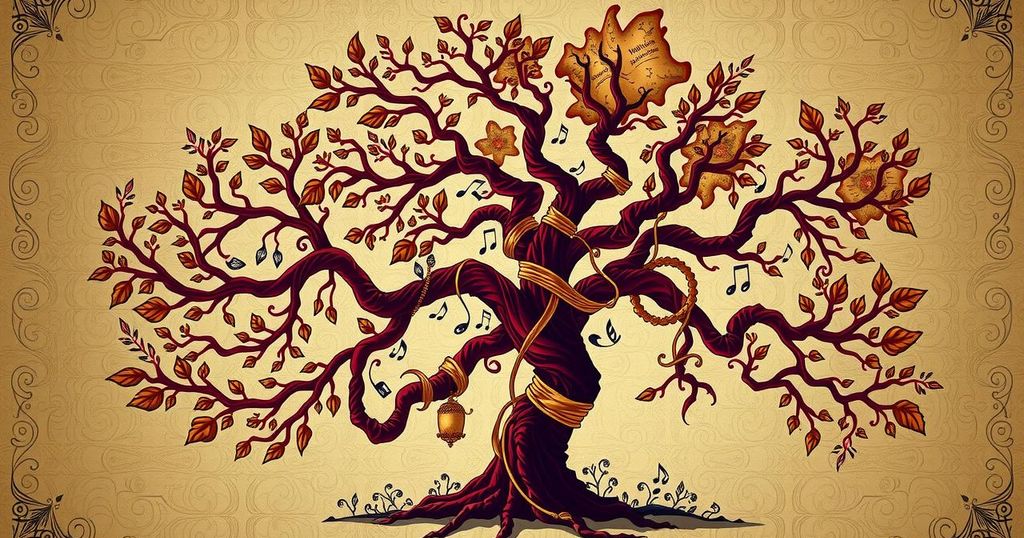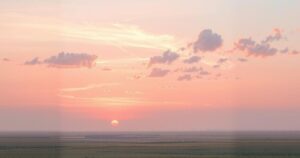Pope Leo XIV’s Ancestry Reveals Scandal, Slavery and Celebrity Connections

Pope Leo XIV’s ancestry has been unpacked, revealing connections to nobility, scandal, and celebrities. Professor Henry Louis Gates Jr. traced his roots back to Spain, uncovering both historical figures of war and family controversies. Among other findings, the Pope is distantly related to Justin Trudeau and Madonna, yet some ancestors were slaveholders. Historical insights were provided by Professor Michael P. Murphy, who discussed the interconnectedness of humanity despite past misdeeds.
Pope Leo XIV’s family tree is quite the mixed bag, involving everything from nobility to scandal, and yes, even a splash of celebrity. The Chicago-born pontiff, who took on the mantle of leadership in the Catholic Church as of May 8, has had his lineage under scrutiny since day one. Harvard professor Henry Louis Gates Jr., known for his PBS show “Finding Your Roots,” offers a deep dive into these ancestral waters in the latest edition of The New York Times Magazine.
Using the expertise of genealogists from American Ancestors and the Cuban Genealogy Club of Miami, Gates has traced the Pope’s roots back to 1500s Spain on his mother’s side — quite a feat! And let’s just say, the findings are as riveting as they are revealing. For instance, four of his 11th-great-grandfathers were classified as “hidalgos” — a fancy term for minor nobility. Look at that!
But wait, there’s more! Some relatives took up arms in wars, with one named Diego de Arana Valladar serving as a captain against Dutch privateers. And let’s not forget the Pope’s grandfather, Salvatore Giovanni Gaetano Riggitano Alito, who once made headlines for having an affair — a true scandal that involved police and a rather dramatic arrest, leaving his wife not exactly thrilled. Quite the soap opera family!
Interestingly, the family tree connects the Pope to a surprising selection of celebrities: Justin Trudeau, Madonna, Hillary Clinton, Justin Bieber, Angelina Jolie, and even literary icon Jack Kerouac. It seems like a loose web of fame is woven right into his ancestry. Oh, and here’s a head-scratcher—the Pope can trace 17 of his U.S. ancestors back to being Black, while at least four of his white ancestors owned slaves. Yikes!
One particularly eye-catching piece of history is that of the Pope’s grandfather, Alito, who emigrated from Sicily to the U.S. in 1905. Apparently, this charming chap had quite a dual life—between teaching music and languages in Chicago and Quincy. His life seems to have been as grand as a romantic comedy, or perhaps a drama, as a newspaper headline from 1917 reveals his wife sought to have him arrested along with his lover. Talk about a tangled family tale!
Michael P. Murphy, a history buff at Loyola University Chicago, chimes in on our interconnectedness through history. He finds it fascinating that these threads come together in such unexpected, yet human ways. As he puts it, “It’s astonishing and consoling to know finally how interconnected we are,” suggesting it might just lead to some peace and goodwill.
Now, should we be scandalized by the less-than-stellar elements found in the past? Murphy thinks not. “Most of us are interconnected in this very refreshing way,” he says, sounding quite optimistic. “Humans are prone to sin,” he adds, practically shrugging off the reality of historical missteps. No shocker there! Instead, he poses the important question of how we respond to our past. After all, it’s not about perfection, but progress, right?
In short, Pope Leo XIV’s ancestry offers a fascinating glimpse into a complex tale of lineage, dotted with controversy and a surprising amount of glamour. It prompts questions about identity, history, and the messy truths that shape us. And guess what? It’s all part of being human.
Now that’s some food for thought!
Pope Leo XIV’s ancestry reveals an intriguing mix of nobility, scandal, and even celebrity connections. His roots and historical context raise questions about family legacies, confronting the unsavory side of history that affects us all. As we consider the Pope’s tangled past, it encourages a broader dialogue about our shared humanity and the imperfect realities we inherit. It seems that even those in positions of high authority are not immune to the complexities of their family trees.
Original Source: chicago.suntimes.com







